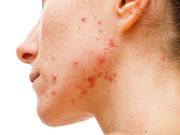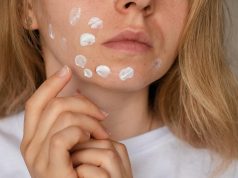Long-term oral macrolides for treatment of acne may increase macrolide resistance
MONDAY, Dec. 18, 2017 (HealthDay News) — Long-term oral macrolide administration may increase macrolide-resistant Propionibacterium acnes, according to a study published online Dec. 13 in the Journal of Dermatology.
Keisuke Nakase, from the Tokyo University of Pharmacy and Life Sciences, and colleagues examined the mutation frequency of macrolide resistance in P. acnes in vitro.
The researchers found that resistant mutants with the 23S rRNA mutation were not isolated when P. acnes mutants were exposed to clarithromycin after being incubated in broth without antimicrobials. After being pre-incubated with 0.03 µg/mL of antimicrobials, the mutants were obtained at the frequency of 10−6. The 23S rRNA mutations A2058G, A2059G, and C2611G were harbored by the resistant mutants. C2611G mutants, which showed resistance to clarithromycin, were obtained 32.1 percent more often when pre-incubated with clarithromycin versus clindamycin. A2058G mutants, which show high-level resistance to clarithromycin and clindamycin, were more often obtained when pre-incubated with clindamycin versus clarithromycin (87.5 percent). There was no difference in the isolation rate of A2059G mutants with either treatment; A2059 mutants showed high-level resistance to macrolides but low-level resistance to clindamycin.
“These results indicate the possibility that long-term use of oral macrolides for acne treatment facilitate the increase of macrolide-resistant P. acnes,” the authors write.
The study was partially supported by Pfizer.
Copyright © 2017 HealthDay. All rights reserved.








